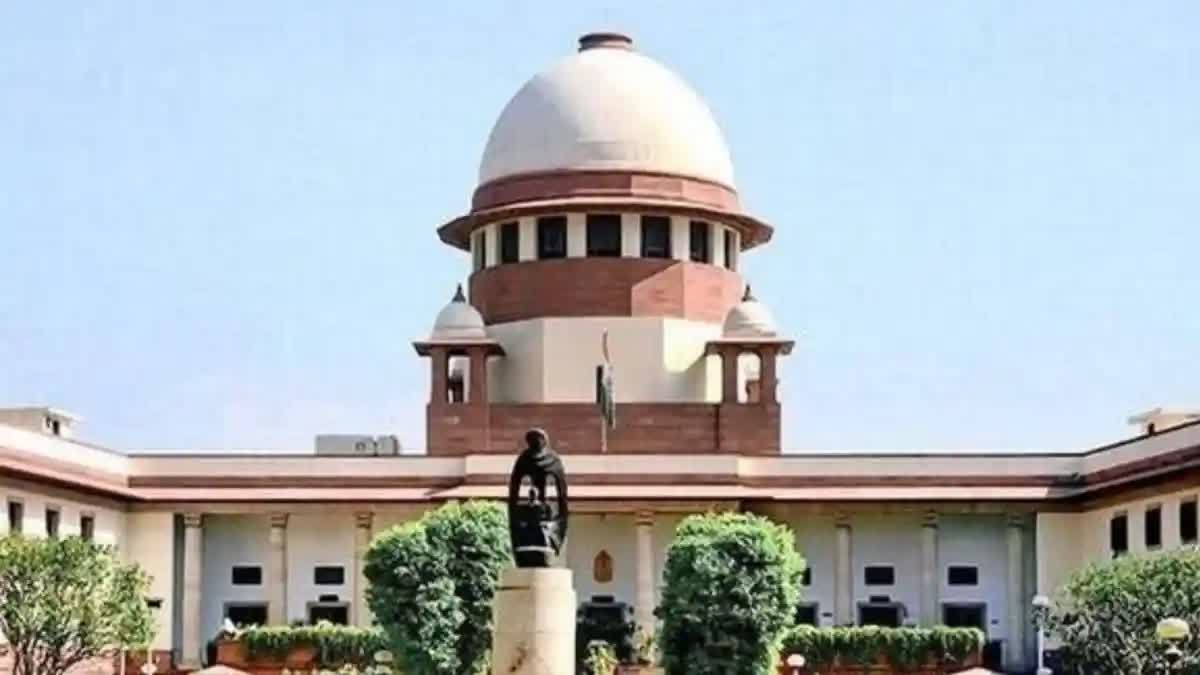New Delhi: The Supreme Court on Tuesday said lawyers should refrain from highlighting selective cases before the court, saying “let us not go by religion or caste….”. The apex court was hearing a PIL raising concerns about a rise in incidents of mob violence against minorities and seeking immediate interim compensation for the families of victims of mob lynching.
A bench comprising justices BR Gavai, Aravind Kumar, and Sandeep Mehta asked advocate Nizam Pasha, representing National Federation of Indian Women, about the inclusion of incident connected with Kanhaiya Lal, a tailor in Rajasthan, who was murdered in 2022 for allegedly sharing a social media post of suspended BJP spokesperson Nupur Sharma regarding Prophet Mohammad.
“What about that tailor in Rajasthan….Kanhaiya Lal...who was lynched," the bench asked Pasha. The counsel submitted before the court that it was not included in the petition. The bench said that the petitioner should ensure that the petition is not selective at all, if the state government has been impleaded in the matter. Senior advocate Archana Dave Pathak, representing the Gujarat government, said the petition should include everybody.
The bench told Pasha, “Let us not go by religion or caste… “. Pasha replied that in his submissions he has not mentioned any religion and while addressing Dave's contention added, “if my learned friend wants to bring some other incident, they are welcome to place additional material before my lords…”. The bench orally remarked, “look at the larger cause…”. Pasha stressed that his client has a long history of public interest litigation before this court. Dave urged the court to examine a paragraph from the petition.
Pasha said: “I do not know why the state has this problem, if there is a particular incident and if there is a particular social issue of targeting a particular community. There is no reason why it should not be brought to the court…I have not mentioned any religion in my submission”.
Dave drew the court's attention to a paragraph in the synopsis of the petition. “In view of the alarming rise of lynching and mob violence against the Muslim community…”, she said. Pasha said that is a statement of fact and it is a statistical fact in this country and there is a rise in incidents against a particular community, and it is a reality we are dealing with. The bench told Dave to file her response, and added "there is a statute in Rajasthan, not a religion specific statute…”. Dave said she made a submission reading the petition as it is.
Justice Gavai said if the petitioner has noticed some incidents regarding persons belonging to a particular community, is there any worth taking it to a certain extent? Dave said if it is a general PIL then it should not be restricted to a particular community. “They are bringing to court’s notice the incidents which are in their knowledge…tell us which are the incidents where Hindu people have been lynched…”, said Justice Gavai.
Pasha submitted that in Madhya Pradesh there was an incident of alleged mob-lynching but the FIR was registered for cow slaughter against the victims, and added if state denies such incidents, then how can 2018 verdict in Tehseen Poonawalla case will be followed. The apex court, in the Poonawalla case, had issued a slew of directions to States to check incidents of cow vigilantism and mob lynching.
The bench asked the counsel, representing the state government, how FIR for cow slaughter was registered without chemical analysis of the meat and why no FIR was registered against those involved in the scuffle. Seeking details of the incident, the bench told the counsel, “Are you trying to save someone?”
Pasha pointed a similar incident which occurred in Haryana where a case for transporting beef was registered but not mob lynching. He said that only Madhya Pradesh and Haryana have filed their affidavit on incidents pointed out in the writ petition and interlocutory applications but other states have not filed any affidavit.
The bench noted that most of the state governments have not filed their reply affidavits to the writ petition giving instances of mob lynching and added, “it was expected of the states to at least respond to what action has been taken in such cases”.
After hearing the submissions, the apex court asked various state governments to apprise it in six weeks on the action taken in incidents of mob lynching and cow vigilantism.
“We grant six weeks’ time to the states who have not filed their replies and also give details of steps taken by them in such cases,” the bench ordered.
The bench asked lawyers to be careful in their submissions and said it has to be about the overall issue which is prevailing.
In July last year, the apex court had sought response from the central government and the police of six states.
Read More



